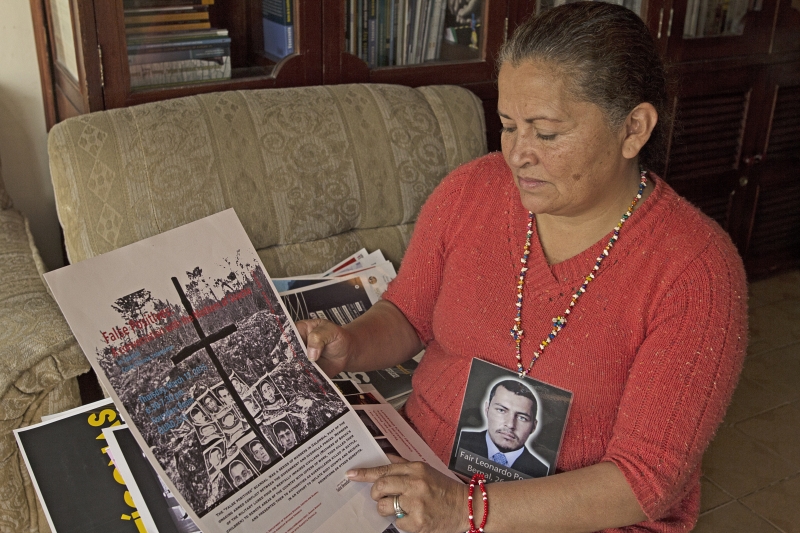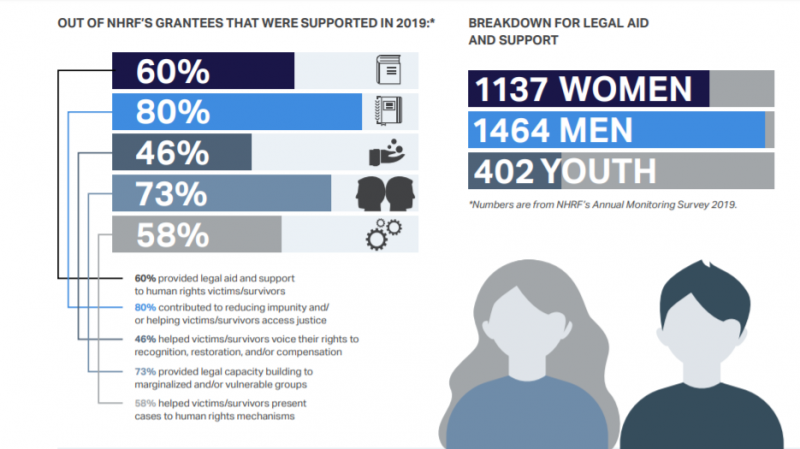“The political and economical accompaniment of NHRF has made it possible to advance and position a key psychological-legal strategy for the defense of human rights, the construction of peace and organizational strengthening.”
ISSUES
Within our current 2016-2020 strategy, our grantees have been and are working to ensure accountability for perpetrators and for institutions that have the power and means to provide remedy and redress for human rights violations against marginalized and vulnerable groups in their communities.
Many of our grantees work with victims and survivors of conflict and conflict-related extrajudicial killings and enforced disappearances. Projects focusing on these issues cover 4 of our 9 priority countries. Conflicts have a lasting impact in the minds and bodies of survivors and the families of victims. Work in this area helps us to understand that there is no expiration date on the desire to pursue justice and accountability for violations of human rights by state or non-state actors. For survivors who feel forgotten, this work is especially meaningful and has a deeply personal impact in the lives of those reached by the support of our grantees.
HOW
Support to people on the ground affected by human rights abuse and to people that are taking a lead in the rights struggle is an important feature of the NHRF. The NHRF supported several organisations in countries affected by war or conflict in the present or past. Changing laws and policies is a long-term effort that involves the contribution of many civil society organisations at local, national and international level. The NHRF is committed to the improvement of the legal and administrative protection in the countries we work.
In our current strategic period, we have supported projects applying the following methods: legal capacity building, collaboration between and the establishment of networks, legal aid/assistance, advocacy, workshops/training on human rights, psychosocial therapy, documentation, monitoring, and reporting of human rights violations, and more.


